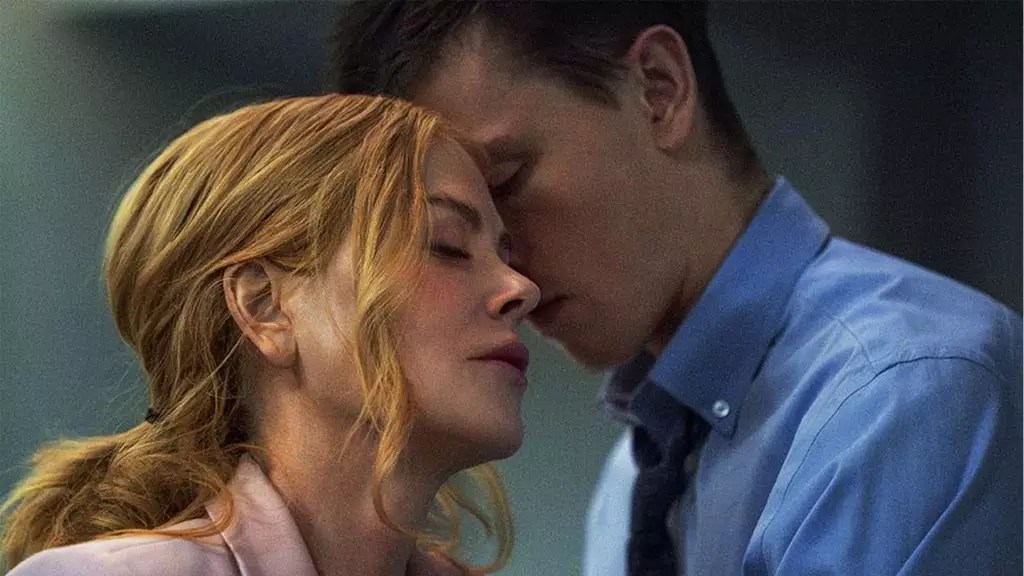In the realm of cinema, where narrative and visual stimulation often intertwine, Halina Reijn’s film *Babygirl* emerges as a poignant exploration of the subtleties of desire and intimacy. Reijn, who serves as both writer and director, delves into the profound connection between reality and fantasy, ultimately revealing that the most tantalizing moments often spring from genuine experiences. The film, characterized as an erotic thriller, shatters conventional portrayals of sexuality, revealing how a crafted narrative can elevate suggestiveness into art.
The standout moment in *Babygirl* involves a daring exchange at a bar between Samuel, played by Harris Dickinson, and Romy, portrayed by Nicole Kidman. Samuel’s order to Romy to drink a glass of milk serves as the catalyst for a discussion about sexual dynamics, and it is deeply inspired by a personal anecdote from Reijn’s life. The inclusion of this moment epitomizes the film’s mission: to elevate the erotic to a cerebral experience, merging the absurdity of everyday life with the complexities of emotional and sexual relationships.
Reijn reflects on a significant event in her past that served as the inspiration for this scene. Her recollection of an interaction with a much younger, well-known Belgian actor underscores a universal truth about vulnerability and courage in seduction. The glass of milk transforms from a mundane beverage into an emblem of attraction and audacity. Such a seemingly innocuous act can unfold into an exploration of power dynamics and the unspoken allure of youthful confidence.
In her discussion with IndieWire, Reijn articulates her intention behind incorporating milk as a recurring motif. In her view, milk transcends its status as a basic drink, morphing into a symbol of primal instincts and inherent desires. It represents both nourishment and the barely concealed sexuality that underpins many interactions. The act of consumption—Romy drinking the milk at Samuel’s insistence—moves beyond physicality; it hints at submission, longing, and the compelling dance of dominance.
This transition from the mind to the sensory aligns with Reijn’s perspective on what constitutes true eroticism. While the visual spectacle of bodies intermingling is the hallmark of many films, *Babygirl* challenges viewers to recognize the potency of suggestion and imagination. Reijn argues that real, impactful intimacy is not merely a byproduct of physical contact, but rather the evocation of desire through nuanced interactions and unexpressed thoughts.
Throughout her creative process, Reijn finds fascination in the interplay of cognitive and emotional dimensions of sex. She provocatively states that genuine erotic moments may thrive on the fringes of physicality, blossoming instead in the territories of the mind. Such an intellectual approach to storytelling invites the audience to engage more critically with the material and its implications. By focusing on the psychological aspects of desire, *Babygirl* offers a refreshing diversion from traditional depictions of sex, which often fail to capture its intricacies.
The film thus creates a dichotomy between expected portrayals of sexual encounters and the more stimulating notions of fantasy and thought. Reijn’s emphasis on suggestion over explicit actions compels viewers to become active participants in deciphering the nuances of romantic tension. The audacity of Romy crawling on a dirty carpet for a piece of candy, as Samuel tenderly pets her, encapsulates this provocative invitation into a world where sex is as much about mental engagement as it is about physical connection.
In *Babygirl*, Halina Reijn steers the conversation on sexuality in cinema into uncharted territories, advocating the idea that a simple act can resonate with profound erotic energy. This film is not just about a power struggle in a corporate setting; it is an exploration of how vulnerability can spark a creative license to express authenticity. Ultimately, Reijn’s vision is a testament to the fact that sometimes the most electrifying moments in life—and on screen—are born not out of explicit desires, but from the complex realm of the mind’s eye, where intimacy finds its most genuine form.


Leave a Reply